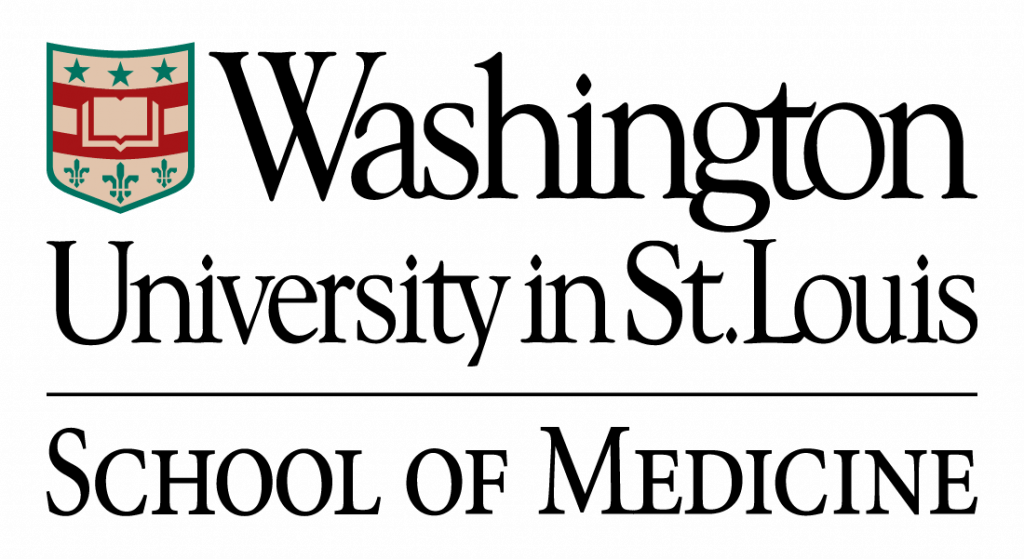Washington University School of Medicine in St. Louis – Department of Pediatrics
RADx Up Grant: Assessing Testing Strategies for Safe Return to K-12 Schools in an Underserved Population

Project Date
May 2021—Mar 2023
Type of Evaluation
Formative, Implementation, Planning, Process
Setting
Academic, Community-based, Health, School
Overview
The Department of Pediatrics at Washington University School of Medicine collaborated with multiple partners in the St. Louis community to enable successful implementation of a saliva-based SARS-CoV-2 test for students, staff, and household members in historically under-resourced communities so that schools could remain open and prevent the transmission of COVID-19.
The Evaluation Center facilitated listening sessions with parents/caregivers, school staff, and students to better understand facilitators and barriers to the uptake of COVID-19 testing and vaccination and to understand the impact of the pandemic on school communities in five school districts in the St. Louis region.
Project Description
Background
African-American populations were significantly and disproportionately impacted by the COVID-19 pandemic, experiencing a higher rate of cases, increased mortality, and deeper economic hardship. Children and adolescents in these groups were less likely to be offered an opportunity to attend in-person schooling.3 As a result, the indirect impacts of the pandemic on children of color also included a greater likelihood of academic decline and significant social consequences, including food insecurity, missed recognition of child abuse and neglect, and increase in depression, anxiety, and suicide.4,5 Public apprehension regarding return to in-person school was based on the concern that school-based transmission of COVID-19 would further spread the virus to high-risk and vulnerable individuals in students’ homes and in the community, worsening the toll of death and suffering. However, the available literature indicates that with proper COVID-19 mitigation strategies – masking, distancing, hand hygiene – school-based transmission of SARS-CoV-2 is low regardless of the community rate of disease.
Since the beginning of the pandemic, Washington University in St. Louis (WUSTL) worked closely with the St. Louis community, including many school districts and organizations that support underserved populations. The primary goal of the project was to enable successful implementation of a saliva-based SARS-CoV-2 test for students, parents, school staff, and their household members so that schools could prevent the transmission of COVID-19. In addition, the Brown School team conducted interviews and focus groups to understand and address COVID-19 testing access and effectiveness as well as the social, behavioral, and ethical factors driving testing and in-person school participation in five St. Louis County School Districts. This evaluation was part of Phase II of the Rapid Acceleration of Diagnostics for Underserved Populations (RADx-UP) initiative, a consortium of community-engaged research projects supported by the National Institutes of Health (NIH), to understand factors that have led to the disproportionate burden of the pandemic on underserved and vulnerable populations.
The team partnered with five school districts in St. Louis County schools to test if weekly SARS-CoV-2 testing in middle and high schools was required to limit the transmission of COVID-19. We performed qualitative listening sessions and interviews with members of the school community including parents, teachers, administrators, and students to understand the facilitators and barriers to testing, the concerns regarding in-person school, and potential issues involving vaccine hesitancy evident in all populations and groups.
The Washington University team was led by the Department of Pediatrics at Washington University School of Medicine and included members from the Evaluation Center, faculty from the Brown School, the McDonnell Genome Institute, and the Health Communication Research Laboratory. The Washington University team partnered with the following school districts: University City School District, Ferguson-Florissant School District, Normandy Schools Collaborative, Pattonville District, and Jennings School District. Community partners included Better Family Life, Beyond Housing, CareSTL, The SPOT, and People’s Health Clinic.
Evaluation Center Activities
- Designed, conducted and analyzed discussion sessions with parents/caregivers, teachers and other school staff to assess barriers and facilitators to regular asymptomatic COVID-19 testing for students and staff.
- Designed, conducted and analyzed key informant interviews with district and school administrators to understand the contextual facilitators and barriers to COVID-19 testing for schools.
- Assessed the impact of COVID-19 and the importance of SARS-CoV 2 testing and vaccination as mitigation strategies among parents, students, and school staff.
- Implemented a participatory process to engage parents/caregivers and staff in the development of the discussion sessions and utilization of the findings through parent and school advisory groups.
- Provided consultation on the testing process, study design, message development, dissemination approach, and product design.
Our Products
- Listening session guides and protocols
- Listening session findings report
- Presentations and briefs
- Annual reports
- Manuscripts
Project Funder
The Eunice Kennedy Shriver National Institute of Child Health and Human Development, NIH, DHHS
Contact Person

Liz Vestal, MSW, LMSW
Evaluation Manager (they/them/theirs)
- Phone: 314-935-8026
- Email: liz.vestal@nospam.wustl.edu